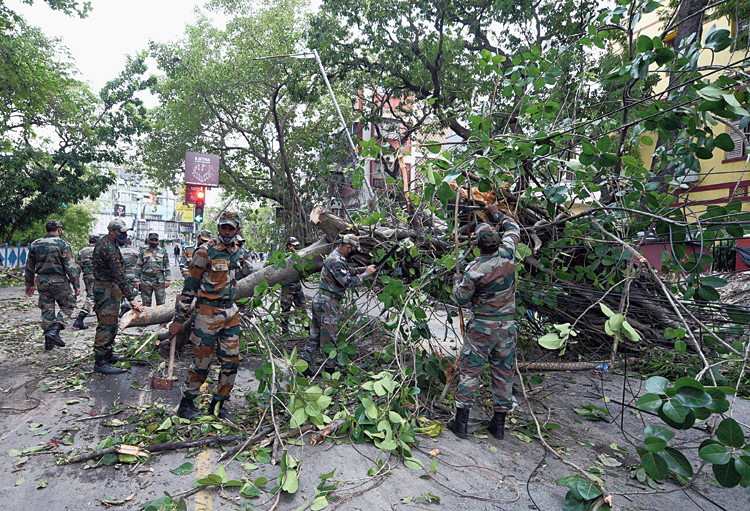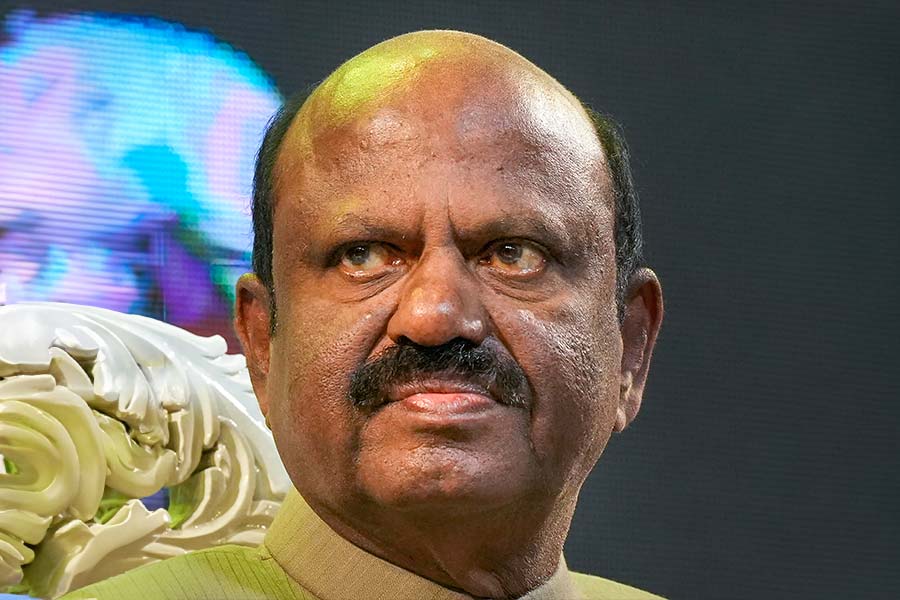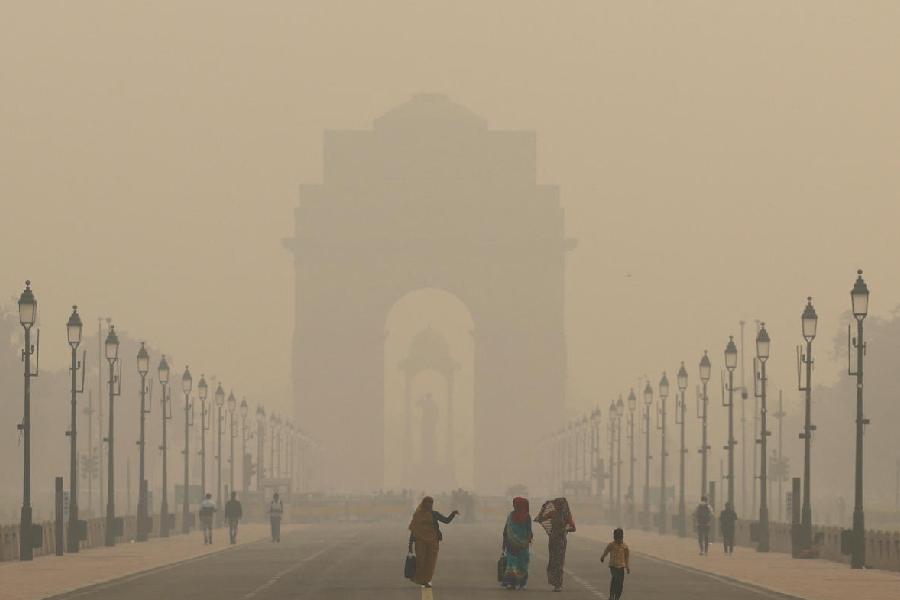Mamata Banerjee on Saturday appealed for patience and said her government had called in the army and other central agencies like the railways and the port trust to help restore normalcy across the state’s cyclone-ravaged areas.
“This is such a huge disaster --- I appeal to all to have patience. One thousand teams are working across the state to restore normalcy. Give us some time,” the chief minister said.
She explained that a shortage of manpower stemming from the Covid-19 crisis was hobbling relief and restoration efforts.
“Because of the coronavirus, offices are being run with 25 per cent -- at most 50 per cent – of the employees. Many have returned to their native places and could not come back because of the lockdown,” Mamata said.
She added that the restoration efforts could start only on Friday evening as the entire state administration had been busy with Prime Minister Narendra Modi’s visit till 2pm.
“There was no electricity in some places for a day. But we need to have patience, because nobody has seen such a disaster before,” the chief minister said.
This is the second time in her nine years as chief minister that Mamata has sought army help. The first time was 2017, when the force was deployed in Darjeeling during the statehood movement.
The Eastern Command has pressed into service five columns of personnel to cut the fallen trees and clear the roads across five locations: Ballygunge, Tollygunge, Rajarhat, Newtown and Behala.
Each column has between 32 and 40 personnel, led by a company commander.
“The specific mandate is to clear the carriageways of fallen trees,” a senior officer at work on Southern Avenue said in the afternoon.
Eastern Command officers said the official nod for deployment had arrived from army headquarters around 2.30pm, and the engagement had started within the next half hour.
Armed with electric saws, JCBs, crowbars and recovery vans, the army began clearing roads after quick area assessments.
“We went to Park Street and adjoining areas and then reached Southern Avenue because more trees had fallen here,” the commander of a column said.
Mamata said Odisha had taken a month and a half to restore electricity fully after Cyclone Fani struck last year.
“We had sent teams to the state to help them. We have asked Odisha to send some people to help us this time,” she said.
Mamata said she was herself facing problems with phone and Internet connectivity, and asked people to consider the situation of those who had lost their homes to the cyclone.
“I visited Kakdwip today and received reports that 10 lakh homes have been destroyed in South 24-Parganas. Drinking water sources are damaged. Please have some patience,” she pleaded.
“Some 47,000 electricity poles were uprooted in South 24-Parganas. It will take some time to erect the poles again.”
The chief minister had a series of meetings at Nabanna after returning from Kakdwip, where she had held a review meeting with district authorities and pushed for speedy relief and restoration.
“The chief minister held meetings with top officials to ensure that restoration was carried out in Calcutta within the next three days. It was decided that the army would be called in,” an official said.
Signs of action
The removal of trees blocking roads and restoration of power supply gained some momentum on Saturday.
Many places still remain cut off with tangled power cables and trees sprawled on the road but in several places that did not see any civic intervention in two days there were signs of action.
A resident of Kasba’s P. Majumdar Road said three trees had been uprooted near the two exits from the neighbourhood during Wednesday’s storm. “The work to remove the trees and the pole began on Saturday morning and the two ends were cleared before noon,” he said
Vehicles were moving down a single flank on multiple stretches of the Rashbehari Avenue connector and Syed Amir Ali Avenue in the past two days as trees blocked the other flank. Most of the trees were cleared on Saturday and vehicles were again moving on both flanks.
In Suryanagar, Bansdroni, a live wire had landed on Vijaylakshmi Dubey’s verandah along with portions of a tree. That is how they remained until a civic team removed the tree on Saturday morning. Power supply to the house has yet to be restored.
In a Topsia neighbourhood without power for three days, a CESC team arrived on Saturday morning, did an inspection and concluded they could nothing until the CMC cleared the trees at Maruti Bagan.
Although a bit late, the decision to seek the help of other agencies such as the National Disaster Response Force (NDRF) and the army to clear some of the roads has freed up some of the civic personnel from clearing thoroughfares. These civic officials personnel can now concentrate on the smaller roads and lanes severely affected by the uprooted trees.
People with experience of civic administration said the delayed response of the CMC was partially because of a centralised command structure that did not suit the current situation. Several former civic officials said because of this centralised structure, borough-level engineers were unable to take decisions they were expected to take on the basis of urgent needs of the people. “They have been waiting for instructions,” a retired civic engineer said.
Former Calcutta mayor Bikash Ranjan Bhattacharyya was of the same view. “There are decisions that a borough executive engineer can take and start the work. But what seems to me is that they are afraid to take decisions on their own. The situation in the current state government is such that the chief minister has to say the most basic things for work to roll,” he said.
“The same thing is happening in the CMC too. The decentralised structure has collapsed. So no one is taking decisions and waiting for a command from the top. This has delayed the response,” he said.
Additional reporting by Subhajoy Roy











